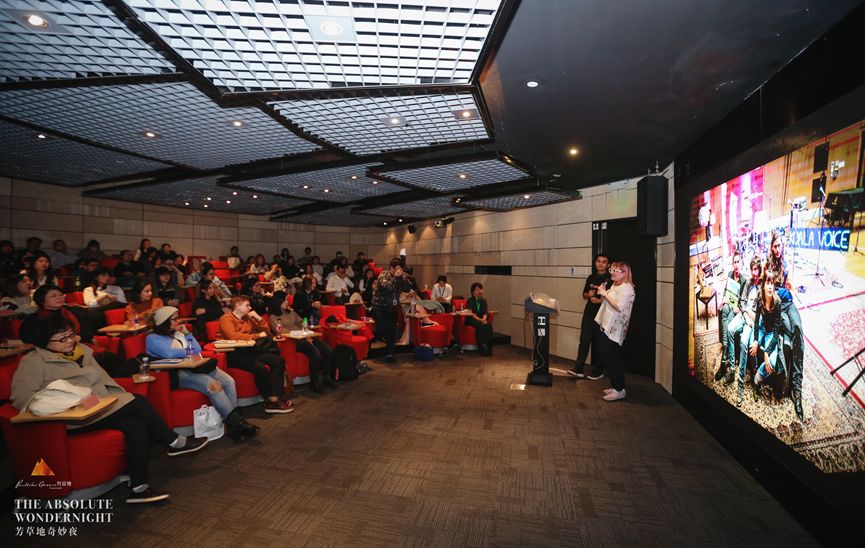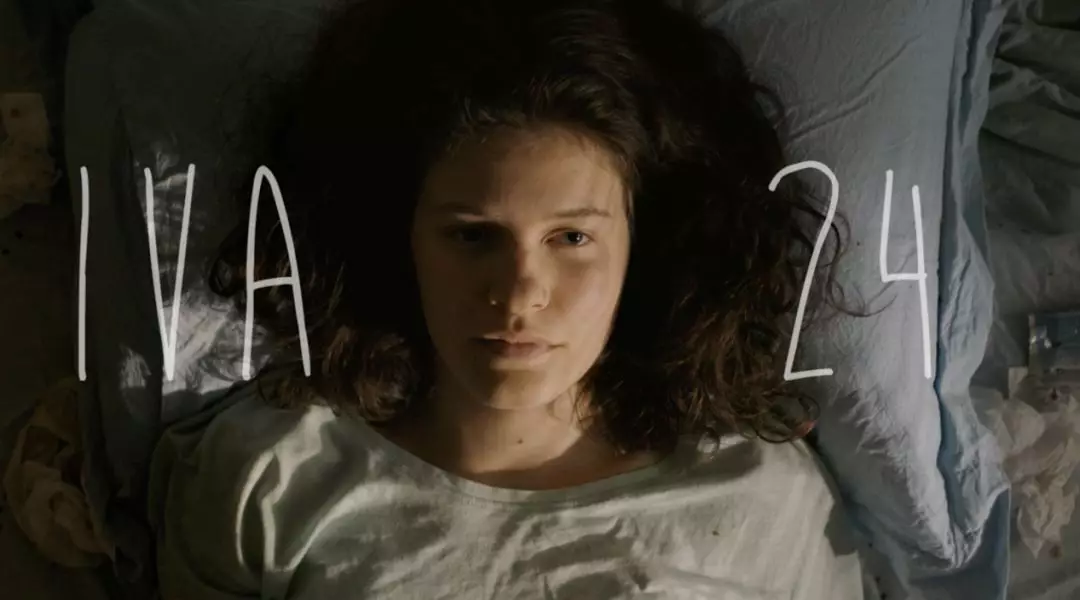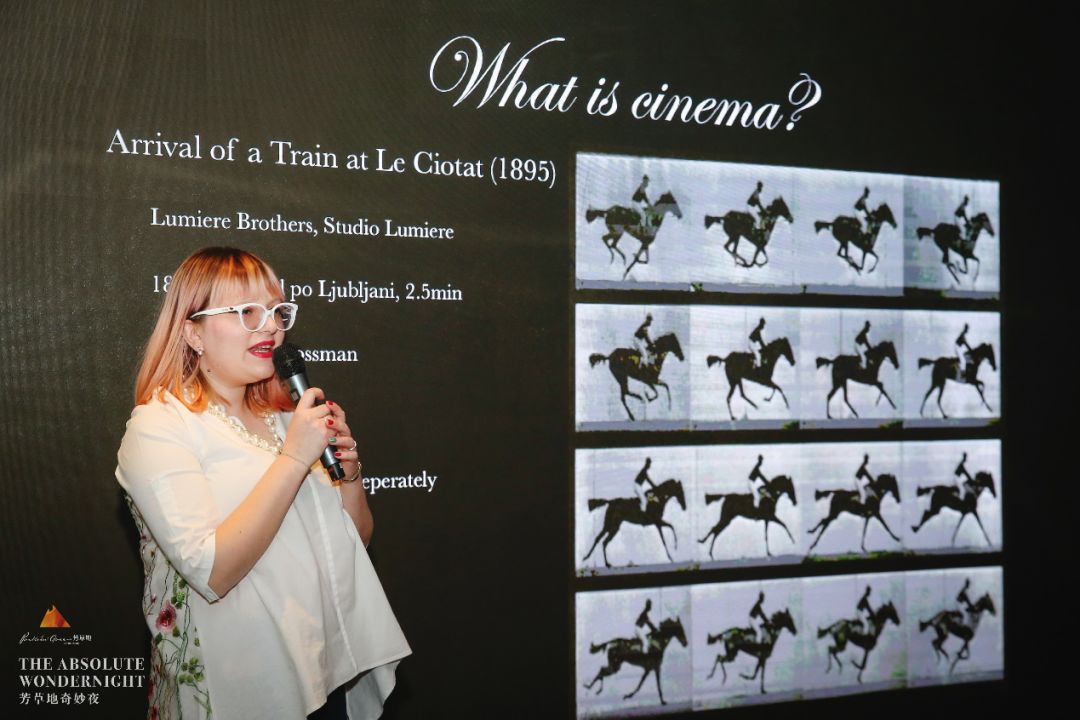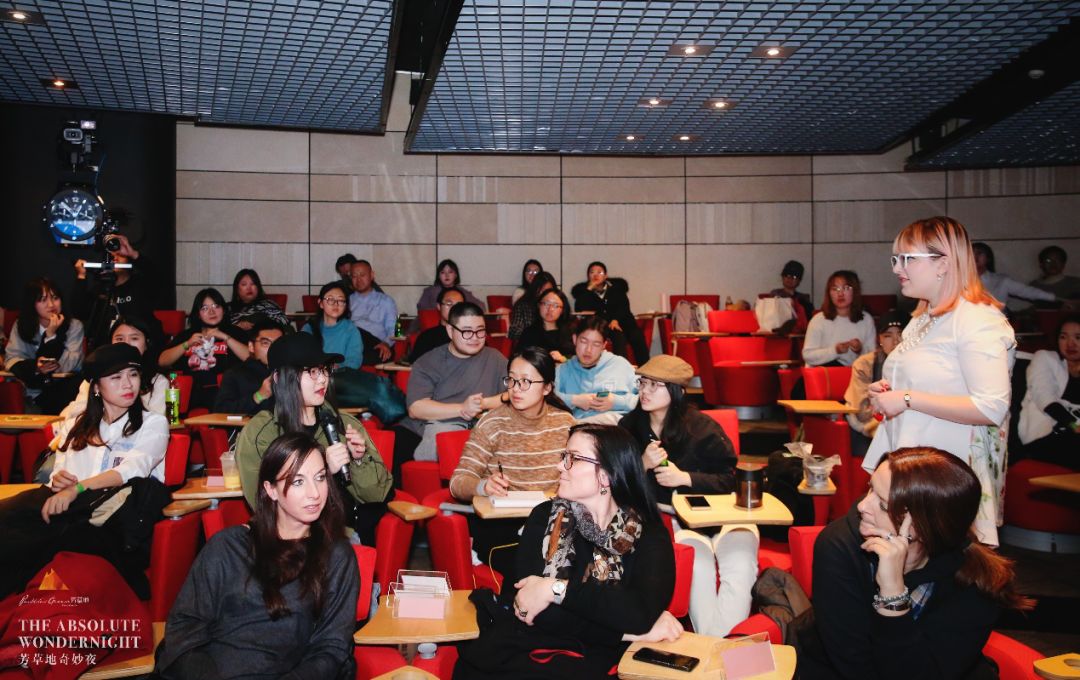The Parkview Museum Beijing successfully held the event “The Museum Night – Slovenia short film screening and after talk” on December 14, 2019, with the special support of Embassy of Slovenia and European Union Film Festival. The Slovenian young script writer and director Hanna Szentpeteri presented two short films directed by herself and she held a talk revolving around the introduction of world film history and the development of Slovenian film. The discussion was followed by a Q&A session where the public engaged in a heated debate about the themes addressed in the movies. A very good interaction between the audience and the director created a vibrant and lively atmosphere.
In Slovenian film history, the major thematic trends can be associated with the anti-war discourse, the narrative of “brave children” and the theme about the condition of existential distress among middle- generation. The popularity of the first two subjects is closely related to history: the start and end of World War II. From the 1990s, the popularity of films based on the existential condition of depressed middle- age people gradually increased in Slovenia. A common trend among these movies is that either the main characters or the films’ producers are male. Depression and mental disorders gradually become the main theme explored in the film, with an emphasis on the biased way of telling stories about roles due to gender difference. The protagonists of Hanna’s two short films are all women. The controversial topics – the fact that many people in Slovenia are affected by depression and the occurrence of gender biased interpretations- can be perceived from Hanna’s movies.
The movie ‘Iva, 24’ tells the story of a young lady struggling with depression due to the sense of helplessness she experiences in life. The protagonist’s emotional fluctuations and behavior present the situation of young people who are affected by depression: the struggle with mental disorder during college and the anxiety about academic and work issues generate perplexity and distress in young people. Iva’s self-destructive behavior, as a consequence of this existential anxiety, represents the struggle and emotional distress that depressed patients are experiencing. However, in the movie a certain tendency to seek help from friends also emerges.
There are many films revolving around depression and mental disorder in Slovenia film history and this can be traced back to the influence of Slovenian literature. The famous philosopher Slavoj Žižek also notes a parallelism between the issues addressed in the movies and the themes presented in the famous literary masterpiece of the Slovenian writer Ivan Senkar, titled "A Cup of Coffee": the book records the anger, the sense of guilty and the regret of the writer caused by the constant interruptions by his mother during his writing activity. This book explores in detail these emotional fluctuations and lays the ground for movies subjects. Hanna’s movie message is clear: mental illnesses, such as depression, are no different from other physical illnesses. Patients should seek help from doctors in order face their mental discomfort, without suppressing their emotions.
Hanna’s second film is a documentary ‘Band & Brand’, showing the daily life and duties of two female band manager. A comprehensive and detailed understanding of the professional characteristics of the musicians can be grasped through the representation of the band’s travels, performances and internal discussions related to how to increase the artistic profile of the band and how to make a living from music. One of the reasons for the creation of this documentary is to challenge the Slovenian gender stereotypes within the working environment, given that the male- centered society in Slovenia has its roots in religion and Slovenian national identity narrative. For example, Bible specifically records the roles that men and women should play in the family: It is believed that duty of a women is to take care of their husbands and families. People with religious beliefs would be easily influenced by this stereotype. These traditional stereotypes foster the gender bias. This documentary highlights the talent and the ability female band managers and therefore it challenges the deeply rooted gender discrimination.
The Parkview Museum Beijing has long been committed to establish a platform for the public for art appreciation and cultural exchanges and it regularly organizes cultural activities. You are welcomed to participate and register.





